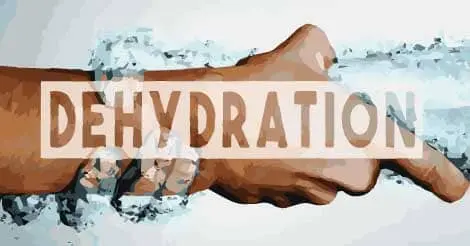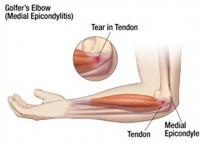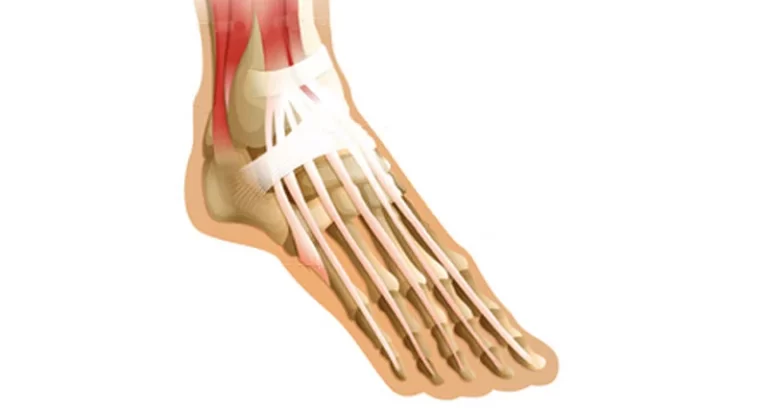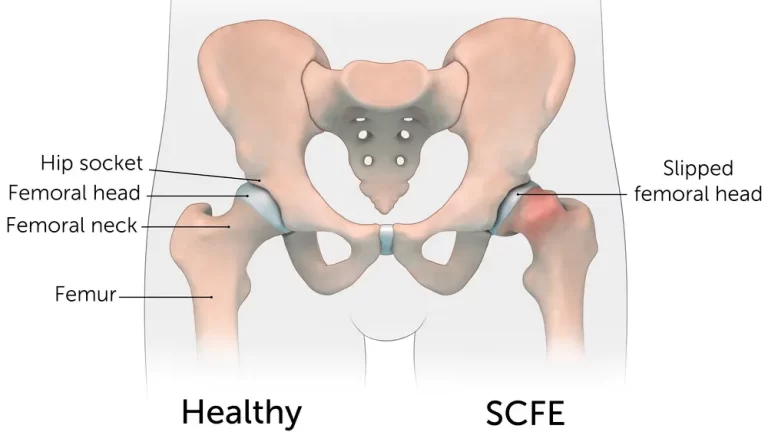Dehydration
What is a Dehydration?
Dehydration occurs when your body loses more fluids than it takes in, resulting in an imbalance of essential minerals and fluids necessary for normal bodily functions. It can be caused by various factors such as excessive sweating, vomiting, diarrhea, fever, or inadequate fluid intake.
When your body doesn’t have enough fluids, it might get dehydrated. It indicates a possible physical issue. Sweating, diarrhea, and vomiting are common reasons. Dehydration can be minor, moderate, or severe dehydration.
The amount of fluid that is lacking from your body as an adult determines how severe your dehydration is. Dehydration in children is determined by the amount of body weight loss as a result of inadequate fluid intake dehydration.
According to physiology, dehydration is the absence of all bodily water and the resulting disturbance of metabolic functions.
It happens when there is more free water lost than taken in, frequently as a result of physical activity, illness, or a hot climate. Diuresis from immersion can also result in mild dehydration and raise the risk of decompression sickness in divers.
A 3-4% drop in total body water can usually be tolerated by most persons without any problems or negative health impacts. Fatigue and lightheadedness may arise after a 5-8% reduction.
When the body loses more than 10% of its total water content, there may be extreme thirst in addition to physical and mental decline.
At a loss of 15–25% of the body’s water, death happens. Oral rehydration is typically the solution for mild dehydration, which is characterized by thirst and general discomfort.
Different from hypovolemia (loss of blood volume, particularly blood plasma), dehydration can result in hypernatremia (high amounts of sodium ions in the blood).
Both the development of chronic renal disease and kidney stone production can be attributed to prolonged dehydration.
Mild Dehydration
This results in symptoms including dry mouth, decreased sweating and urination, and thirst. When a child loses 3%–5% of their body weight in fluids, they are considered to be mildly dehydrated.
At home, you can treat mild dehydration with electrolyte drinks, water, or over-the-counter oral rehydration treatments.
Moderate Dehydration:
Though more severe, the symptoms resemble those of mild dehydration. It indicates that a youngster has dropped 6%–10% of their body weight. You must receive IV fluids from a medical professional.
Severe Dehydration:
Dizziness, sunken eyes, fainting, fast breathing, and a racing heart are some of the symptoms. Youngsters may shed more than 10% of their total weight. Dehydration of this kind has to be treated medically right away. You could receive IV fluid therapy that contains salt.
Causes Of Dehydration
Your body normally loses water through breathing, perspiration, urination, defecation, and salivation every day.
Generally, you replenish the lost fluid by consuming meals and beverages that are high in water content. Not eating and drinking enough, or losing too much water, can cause dehydration.
Dehydration can be caused by a number of risk factors, such as exercising in hot and muggy conditions, living at high elevations, engaging in endurance sports, being elderly, having a baby, a kid, or someone with a chronic disease.
Dehydration can also occur as a side effect of a wide range of pharmaceuticals and treatments. Dehydration in the elderly appears to be mostly caused by a dulled response to thirst or an inability to get free water in the face of excessive losses of free water (particularly those connected to hyperglycemia).
There are two ways that extra free water, also known as hypotonic water, might exit the body: sensible water loss through processes such as osmotic diuresis, sweating, vomiting, and diarrhea, and insensible water loss mostly through the skin and respiratory system.
Dehydration in humans can result from a variety of illnesses and conditions that affect the body’s ability to maintain water balance. These mostly result from either excessive salt intake or poor thirst/water intake.
More water loss than normal can occur with:
- Fever
- Pneumonia
- Vomiting
- Prolonged perspiration
- Frequent urination (diabetes and some drugs, including diuretics or water tablets, can increase the frequency of urination)
You might not be able to replenish the lost water because
- You neglect to drink enough since you’re busy.
- You are unaware that you are dehydrated.
- You’re sick to your stomach, have mouth or throat sores, or don’t feel like drinking.
Symptoms Of Dehydration
Here are several indicators of mild to moderate dehydration:
- Thirst
- A parched or gummy mouth
- Not urinating much
- Urine is dark yellow
- Skin is cold and dry
- Headaches
- Muscle spasms
- A dry cough
- Hypotension
- Appetite loss or sugar cravings
- Cleansed skin
- swollen feet
- Colds
- Indigestion
- Skin that is shriveled
- Absence of perspiration
Severe dehydration symptoms include:
- Absence of urination or extremely dark yellow stools
- Excessive dry skin
- Lightheadedness;
- Fast pulse;
- Breathlessness;
- Sunken eyes
- Fatigue, drowsiness, disorientation, or agitation
- Passing Out
Infants and early children may have distinct symptoms from adults.
- Parched tongue and mouth
- No crying fits
- Infants should not have more than six wet diapers in a day
- Toddlers should not urinate or change their diapers for eight hours
- Sunken cheeks, eyes, and a soft region on the skull’s top
- Lethargy, insufficient energy, or agitation
- Wrinkly or dry skin
- Breathing deeply and quickly
- Crisp, smeared hands and feet
In case of a medical emergency, severe dehydration must be addressed very well.
Dehydration Risk Factors
Anyone can get dehydrated, however, certain persons are more likely to do so than others:
Infants And Young Children
are most likely to experience severe vomiting and diarrhea, and their high temperature causes them to lose the most water. The youngest are unable to express their thirst or seek liquids on their own.
Senior Citizens
frequently fail to recognize their thirst. If their mobility is compromised, they can find it difficult to obtain a drink or may experience difficulties consuming adequate fluids as a result of medical issues.
Individuals Who Are Unwell
may not want to eat or drink if they have a cold or sore throat.
Individuals Who Suffer From Long-Term Illnesses
such as type 1 or type 2 diabetes, may cause excessive urination if left unchecked. They could also take medications, such as water pills, which cause them to urinate more frequently.
Individuals Who Engage In Outdoor Activities
People who labor in warm climates, such as those in construction or surveying, may find it difficult to cool off properly since their perspiration doesn’t evaporate. A higher body temperature and a greater demand for fluids may result from this.
Individuals At High Elevations
eight thousand feet above sea level. Lower oxygen concentration and drier air are characteristics of high-altitude environments. You may breathe more forcefully and quickly as a result, losing more water than normal.
Effects Of Dehydration
If you don’t drink enough fluids or consume too much too fast, dehydration might cause problems.
When insufficient blood flow causes your important organs to malfunction or your kidneys attempt to retain fluid, complications ensue. Among these are a few of them:
- Heatstroke or fatigue
- Convulsions
- Failure of the kidneys
- Coma
- Startled
- Brain edema
Low blood volume shock is characterized by low blood pressure and low blood oxygen levels.
It can be fatal to get dehydrated if left untreated.
In an attempt to rehydrate, consuming excessive amounts of liquids may result in fluid accumulation in the lungs (pulmonary edema) and limb edema (peripheral edema). Low blood volume shock is characterized by low blood pressure and low blood oxygen levels.
It can be fatal to get dehydrated if left untreated. In an attempt to rehydrate, consuming excessive amounts of liquids may result in fluid accumulation in the lungs (pulmonary edema) and limb edema (peripheral edema).
Dehydration during pregnancy can lead to major health issues like insufficient amniotic fluid, early delivery, and insufficient breast milk production. Your growing kid may have neural tube problems as a result, which might cause them to be born disabled.
Dehydration Treatment
Your health depends on drinking enough water in addition to eating right, exercising, and getting enough sleep. It’s especially important when you need more fluids than usual or are more likely to lose them, such as when you’re ill, pregnant, or working out.
In order to keep hydrated, make sure you consume the recommended amount of water for your body:
- Always have a bottle of water with you, and top it off as required. Freezer-safe water bottles may be carried throughout the day and kept in the freezer overnight for cool, refreshing beverages.
- Before every meal, sip some water.
- Add a slice of lemon or lime to your water to enhance its flavor.
- To relieve your thirst, reach for water rather than sugar-filled, alcoholic, or caffeinated beverages.
- You may use your phone to create reminders to remind you to drink water if you have a tendency to forget.
- Pay attention to your body’s signals and sip water as soon as you detect thirst.
- Start a “drink water” challenge, either by yourself or with loved ones, to encourage yourself to consume adequate water.
Eat more fruits, vegetables, and soups—foods high in water—to increase your consumption.
FAQ
What is the fastest way to cure dehydration?
Drinking fluids, especially sports drinks or oral rehydration treatments that contain electrolytes, is the quickest approach to treating dehydration. For quicker outcomes, people with medical issues that prevent them from drinking enough water may need IV hydration.
How can I reduce dehydration?
Drinking lots of water is the greatest approach to prevent dehydration, particularly if you’re playing or working in the sun or in a hot region. Recognize how much fluid you lose when you perspire and sweat. Consume enough liquids to match the amount you’re eliminating.
What are the 3 serious effects of dehydration?
Serious side effects from dehydration include convulsions, cerebral edema, renal failure, shock, coma, and even death. Dehydration symptoms and indicators include ache. feeling lightheaded or dizzy.
When is dehydration serious?
Less urine production, dry mouth, and thirst are possible symptoms. Problems with blood pressure, heart rate, and body temperature might arise with mild dehydration. Weakness or disorientation are further symptoms of severe dehydration. Severe instances may result in death, brain damage, or renal damage.
How can I rehydrate in 2 hours?
Drinking plenty of water can help treat many minor episodes of dehydration. You can expedite the process of replacing electrolytes if necessary, such as in the case of severe exercise, diarrhea, or vomiting, by consuming a sports drink or electrolyte solution.
Is lemon water good for dehydration?
Dehydration may lead to a variety of issues, such as mood swings, cognitive difficulties, and other medical issues. One effective technique to remain hydrated before going to bed is to have a glass of hot lemon water. Lemons are a great method to get vitamin C, which has several health benefits.
How can I fight dehydration at home?
Avoid attempting to prepare your own pre-mixed rehydration solution if you are unable to obtain one. Sips of water, fruit juice, crushed fruit combined with water, or salty soups or broths are a better way to naturally replenish lost fluids. Fruit juices should ideally be diluted with water to avoid causing stomach distress.








17 Comments